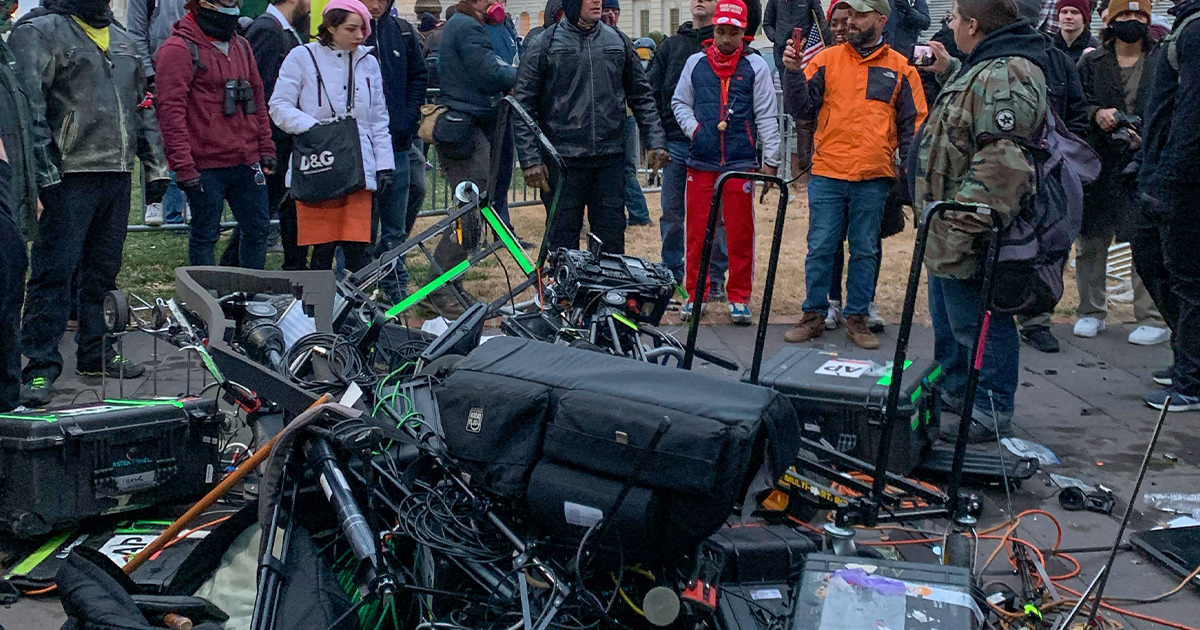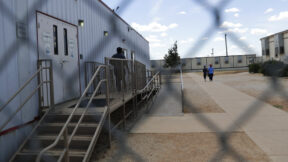Reporters Say They’re ‘Traumatized’ After Jan 6.: ‘I’m Still Not Sleeping Like I Used To’

Camille Camdessus/Getty Images
Reporters are “struggling” with problems including post-traumatic stress disorder after January’s unrest in the nation’s capital, according to a Tuesday report.
“Some reporters who were there won’t go back into the building,” according to the report from VICE News. “A number have sought therapy to deal with the trauma. One longtime Capitol Hill reporter opted for early retirement shortly after living through the riot.”
“I’m still not sleeping like I used to, even to this day,” PBS NewsHour correspondent Lisa Desjardins told the publication. “I became kind of an insomniac.”
Bloomberg News reporter Erik Wasson called the day “traumatizing” and said he “shut my emotions.” Of the aftermath, he added, “I do remember just feeling unsafe in my house. It occurred to me, like, I wonder if some protesters could be tracking me or could show up at my house. There was definitely a moment of fear, and just trying to assess whether there was actually any danger to me and my family.”
NBC News editor Ginger Gibson echoed the sentiment. “That day we weren’t just observers; we were one of their targets,” Gibson said. “A lot of us reporters are having a tough time with that.”
Punchbowl News co-founder John Bresnahan said he was “shocked” that House Republicans voted against certifying President Joe Biden’s victories in Arizona and Pennsylvania. “That was the thing that surprised me most of the entire day: They’d just gone through this, and they were still f*cking objecting,” Bresnahan said. “I was shocked at that vote. I was shocked that they did that. I was shocked, after everything that just happened.”
He added that the event made him believe that certain aspects of the conservative movement — including the Tea Party, which focused on a message of lower taxes and limited government — were based on “White rage.”
“That was White rage and we should have covered it as White rage, and we didn’t. We covered it as conservative backlash. They were booing John Lewis, for God’s sake,” he said, referring to the late civil rights leader who held a seat representing Georgia in the U.S. House from 1987 until his death in 2020.
“I can’t tell you how many conversations I’ve had with reporters of ‘I don’t know if I want to do this anymore, I’m not sure if I want to be here anymore,'” Desjardins added.
New: The Mediaite One-Sheet "Newsletter of Newsletters"
Your daily summary and analysis of what the many, many media newsletters are saying and reporting. Subscribe now!






Comments
↓ Scroll down for comments ↓